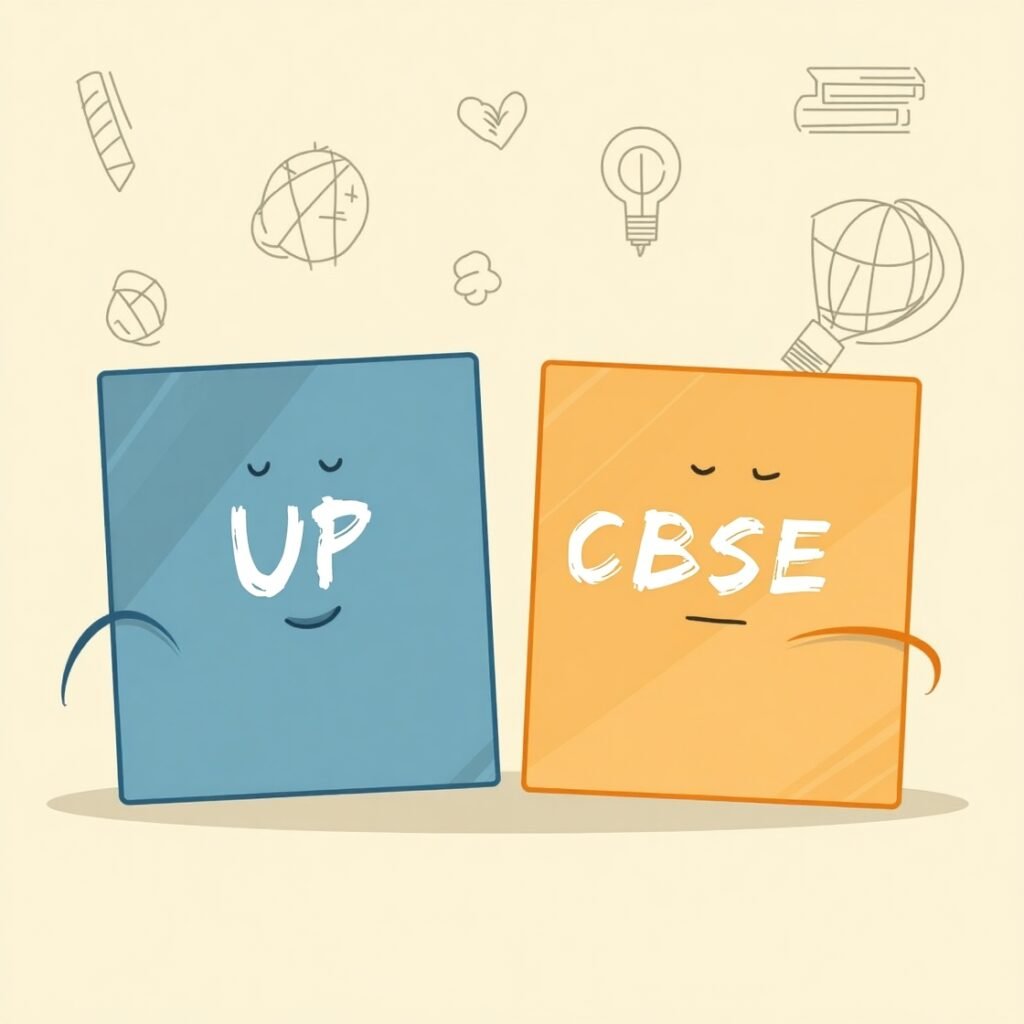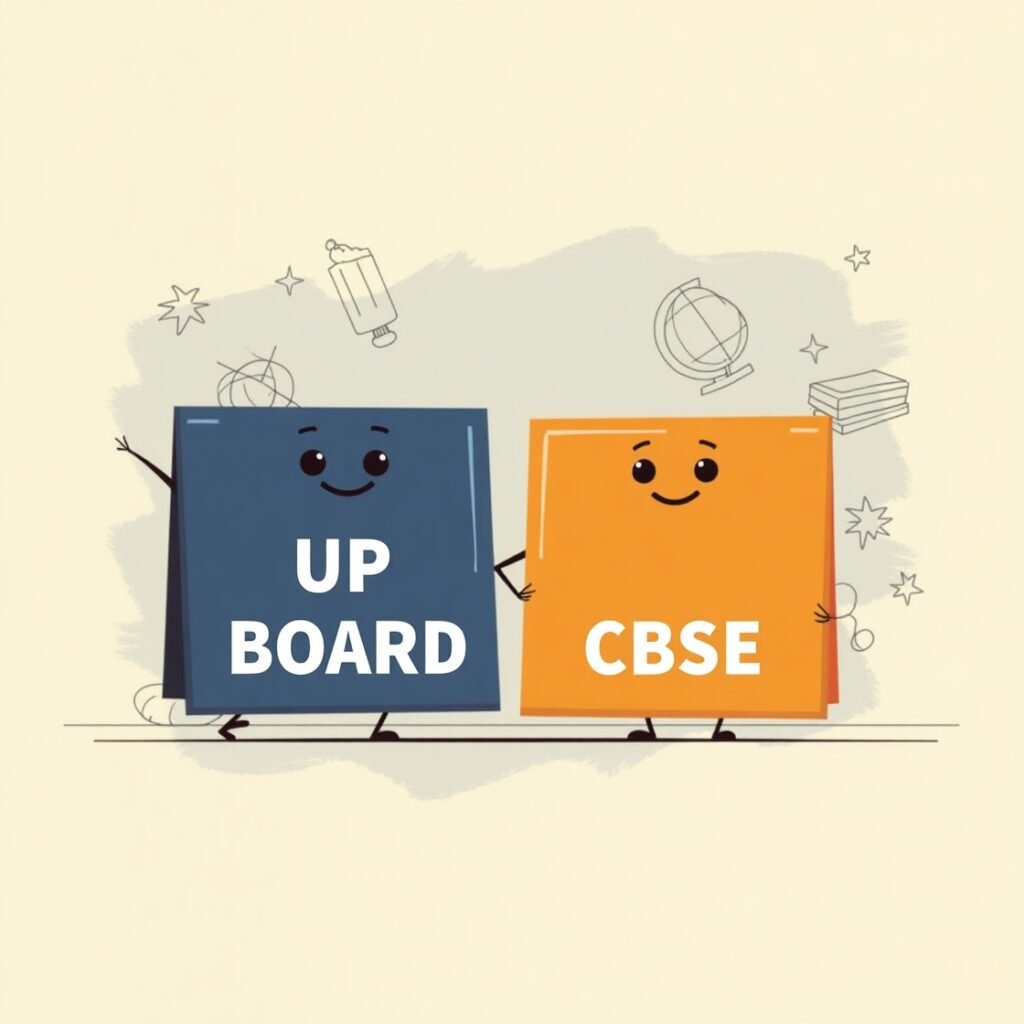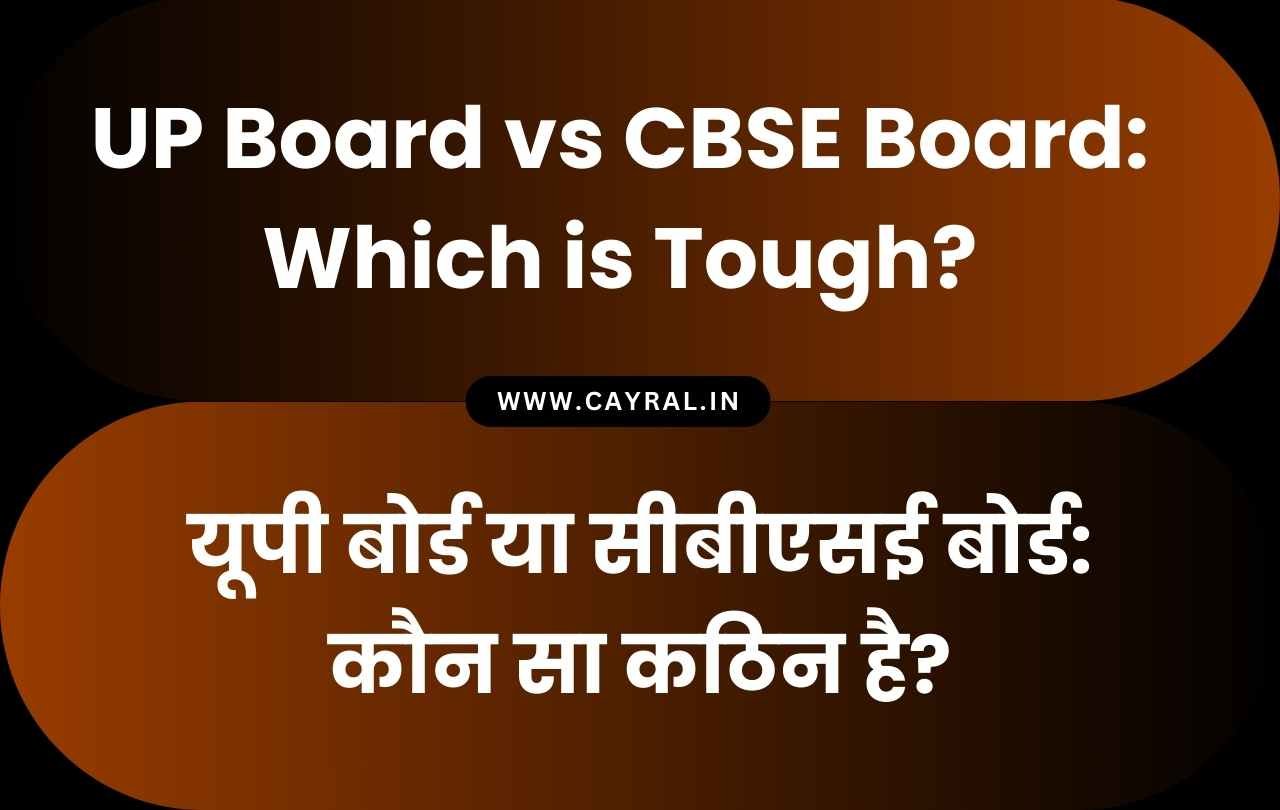UP Board vs CBSE Board: Which is Tough? Choosing the right education board for your child is a critical decision that can influence their academic journey and career prospects. Among the numerous boards in India, the UP Board (Uttar Pradesh Madhyamik Shiksha Parishad) and the CBSE (Central Board of Secondary Education) are two of the most prominent. But which one is tougher? To answer this, we will analyze these boards based on syllabus complexity, examination patterns, scoring trends, and student performance.
UP Board vs CBSE Board: Which is Tough?

Key Differences Between UP Board and CBSE Board
| Feature | UP Board | CBSE Board |
|---|---|---|
| Governing Body | UPMSP (Uttar Pradesh Madhyamik Shiksha Parishad) | Central Board of Secondary Education |
| Medium of Instruction | Primarily Hindi | English & Hindi |
| Syllabus Source | UP State Board Curriculum | NCERT (National Curriculum) |
| Examination Format | More theoretical, lengthy questions | Concept-based, objective + subjective |
| Scoring Trends | Lower pass percentage | Higher pass percentage |
| Difficulty Level | More memorization, subjective answers | Concept-driven, objective-based questions |
| Board Exam Evaluation | Strict checking | Moderately lenient |
1. Syllabus Complexity
- UP Board: The UP Board syllabus is vast and theoretical, focusing heavily on memorization and descriptive answers. Students must write long-form answers, which demand detailed knowledge and time-consuming preparation.
- CBSE Board: CBSE follows the NCERT curriculum, which is designed to encourage conceptual understanding. The syllabus is more aligned with national-level competitive exams like JEE, NEET, and UPSC.
Verdict: UP Board’s syllabus is more content-heavy, making it tougher for students who prefer conceptual learning.
2. Exam Pattern & Evaluation Process
- UP Board:
- More theoretical papers, requiring descriptive answers.
- Strict evaluation criteria lead to lower overall scores.
- Emphasis on writing skills and memory retention.
- CBSE Board:
- Balanced MCQ + Subjective pattern, reducing the dependency on memorization.
- Moderately lenient evaluation.
- Questions focus on application-based learning.
Verdict: CBSE’s exam pattern is more student-friendly, while the UP Board has a tougher checking system, making scoring difficult.
3. Scoring Trends & Pass Percentage
- UP Board: Pass percentages in UP Board exams fluctuate due to strict evaluation. In 2023, the pass percentage was 75.52% (High School) and 72.27% (Intermediate).
- CBSE Board: CBSE exams are structured to help students perform better. The pass percentage in 2023 was 93.12% for Class 10 and 87.33% for Class 12.
Verdict: CBSE students tend to score higher, while UP Board students face a tougher evaluation process.
4. Competitive Exam Readiness
- UP Board: The syllabus is detailed but not well-aligned with national-level competitive exams.
- CBSE Board: Strong emphasis on NCERT books, making it ideal for JEE, NEET, UPSC, and other national exams.
Verdict: CBSE Board is better for students aiming for competitive exams.
5. Medium of Instruction & Accessibility
- UP Board: Primarily in Hindi, making it less accessible for students seeking higher education outside UP.
- CBSE Board: Available in both English and Hindi, giving students more flexibility for national and international opportunities.
Verdict: CBSE offers more global exposure and opportunities.
6. Student & Parent Perspective
UP Board Students’ View:
- High difficulty due to long subjective papers.
- Strict marking affects overall scores.
- Lack of modern assessment techniques.
- Limited exposure to English-medium competitive content.
CBSE Students’ View:
- Balanced syllabus with conceptual clarity.
- Better scoring opportunities.
- More resources available for competitive exams.

Final Verdict: Which is Tougher?
Considering all factors, the UP Board is tougher than CBSE due to:
- Strict evaluation system.
- Theoretical and memory-based syllabus.
- Limited resources for competitive exams.
CBSE, on the other hand, is more student-friendly, scoring-oriented, and aligned with higher education needs.
Conclusion
If a student wants to excel in competitive exams, CBSE is the better choice. However, if they are comfortable with the Hindi medium and prefer traditional learning, the UP Board is a strong alternative. Ultimately, the choice depends on a student’s learning style and future aspirations.
Do you think UP Board is tougher? Share your thoughts in the comments!


Leave a Reply
You must be logged in to post a comment.